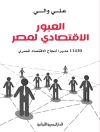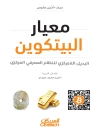In the twenty-first century, it is necessary for Asia to step up and assume a larger leadership role on the global stage, commensurate with its economic weight and interests. Eighty-eight percent of the increase in the numbers of the middle class in the next five years will take place in Asia, underscoring the reality that global business and leadership will be colored in significant ways by Asian values, approaches and strategies. This book explores how this may impact our view and conceptual approach to the notion of global leadership.
The contributors to this collection explore and examine the concept of global Asian leadership and outcome implications at the societal, corporate and policy-making level. They argue that global leaders will increasingly focus on specific needs, values and strategies that are uniquely Asian, which emphasizes the reality that we most likely will have to redefine our notion of global leadership. This comprehensive study of the integration of Asian and global leadership will benefit those employed in the corporate, government and educational sectors as well as a broader audience with an interest in leadership, policy-making and economics.
‘To truly understand Asia, one needs to grasp not only its cultural dimensions, but also the organizational and societal contexts which provide a training ground and unique challenges and opportunities for Asian leaders. In this book, leading scholars share the latest thinking and scientific research on exactly these topics. Highly recommended for both novices and seasoned executives and scholars!’
Donald L. Ferrin, Ph.D., Professor of Organisational Behaviour and Human Resources, Lee Kong Chian School of Business, Singapore Management University
‘While Asia’s rapid economic growth has caught the attention of the world, the study of the leadership engine behind the growth has been scarce. This book fills the void by assembling a coherent group of insightful articles to explore and explicate how Asian business leadership is different yet also similar to Western business leadership. The similarity resides in the meaning of leadership, that is, the capacity to influence others to achieve a common goal, whereas the difference manifests in the means or styles to exert such influence. With better and deeper understandings of Asian business leadership, this book offers invaluable wisdom to bridge the gap between the East and West for a more prosperous future of all mankind’
Philip M. Condit, Endowed Chair Professor in Business Administration, Editor-in-Chief of Management Insights and Incoming Editor-in-Chief of Management and Organization Review, Department of Management and Organization, Foster School of Business, University of Washington
Содержание
Introduction: When friends meet in the 21st Century: An Asian perspective on global leadership—David De Cremer
PART I: Understanding Asian Leadership in a Global Setting
1. Global Leaders Developing in Asia—Dean Tjosvold, Alfred S. H. Wong, & Nancy, Y. F. Chen
2. Asian Cultures and leadership—Zhaoli Song
3. Values in Asian Global Leadership—Melody P M Chong
4. Dual strategy theory: Implications for global leadership—Mark van Vugt
PART II: On the Challenges of Asian Leadership in a Global Setting
5. Asian social entrepreneurs: Taking on neglected problems—Audrey Chia
6. Acting Fast and Pondering Slow: Putting Asian Leadership in Context—David De Cremer
PART III: Demonstrating the use of Asian Global Leadership
7. Building Collective Leadership Capacity for Growth—Alison Eyring
8. Humor and leadership effectiveness: Comparing East vs. West—Sam Yam
9. The role of the leader in shaping a civil and respectful workplace—Sandy Lim
10. Global leadership needs Eastern Approaches to Creativity—Mike Mai
11. Management development in Asia as an antecedent of career success—Irene De Pater
Об авторе
Professor
David De Cremer is a world leading thought leader and behavioural scientist with a special interest in managing and leading individual and organizational transformations in the 21st century (or also called the new tech era). Currently he holds the Provost Chair at National University of Singapore (NUS) Business School, where he is also a professor at management and organizations and the director and founder of the Centre on AI Technology for Humankind (Ai TH) at NUS Business School. Before moving to NUS, he was the KPMG endowed professor at Judge Business School, University of Cambridge. He received several career awards for his scientific work, was named the most influential economist in the Netherlands (2009-2010), a Global Thought Leader by the Trust Across America (2016) – Trust Around the World organization, whose annual list recognizes people for efforts “in elevating societal trust, one of the World’s top 30 Management Gurus and Speakers in 2020, a Thinkers50 Radar 2021 (one of the 30 global thought leaders to watch) and included in the World Top 2% Scientists.












